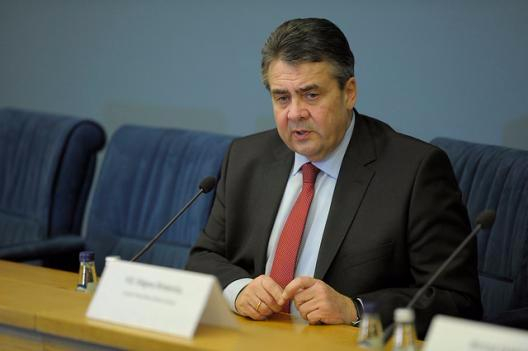 The Alliance is at a crossroads and faces multiple challenges in and around Europe. In view of these challenges, a strong transatlantic bond is key! We share the same priorities and fundamental interests – based on a common set of values and principles.
The Alliance is at a crossroads and faces multiple challenges in and around Europe. In view of these challenges, a strong transatlantic bond is key! We share the same priorities and fundamental interests – based on a common set of values and principles.
NATO is unique in this regard. And it is vital that the summit in May sends a clear message of unity – including a reinvigorated US commitment to our collective defense!
Germany understands and accepts the call for burden-sharing within the Alliance. And there is a clear need to better resource our armed forces in Europe, given the security challenges we face. We have already reversed the trend in our defense budget – because this is in our genuine interest, not because somebody forced us to do so.
Our defense spending has increased by 13.7% under NATO criteria. This year’s budget alone will mark an increase by 7.9%! More than 11% of the federal budget will be spent on defense. The overwhelming part will be made available to NATO directly. It is this “output” for NATO which we need to focus on more– especially with a view to capability shortfalls.
We respect the 2% guideline – but we should not move the goalposts: it was formulated in Wales as a guideline and not as a goalpost. Defense spending and military means are important to provide for more security, but they are by far not the only means.
One of the results of the G20 Foreign Ministers’ meeting in Bonn was that crisis prevention, humanitarian aid, economic development and non- military stabilization are indispensable additional elements for security.
This is why our defense spending should not be driven by quantitative targets only. We should also look at quality and impact. Our spending needs to be embedded in a political strategy. The objectives of our political strategy determine the quantity and the quality of our approach.
In Syria, Iraq or Afghanistan we need more than military means to end the conflict. This is the lesson we have all learned since 9/11.
In Iraq, for example, non-military stabilization efforts are more crucial than ever – especially with regard to the ongoing liberation of Mosul. Unless we succeed in improving security and living conditions quickly we risk that the hard-fought victories of the coalition will not be sustainable.
Regarding Syria we need to continue our work to ensure that negotiations in Geneva continue. A lasting ceasefire and full humanitarian access in the entire country are urgently needed.
We cannot defeat ISIS and other terrorist groups without a political solution for Syria and without stabilizing Iraq politically and economically.
Germany today is one of the biggest contributors to international humanitarian aid – 1.2 billion EUR in 2016. We will fulfill the ODA benchmark of 0.7% GDP for development aid this year. Let me add: A big part of our spending today regarding the refugee crisis is related to the consequences of failed military interventions in the past. What we saw was, without a political strategy we cannot achieve sustainable stabilization.
Non-military stabilization efforts, humanitarian aid and development are all important investments that should be taken into account. They will help us reduce the need for costly military intervention in the future.
Statement Issued by German Foreign Minister Sigmar Gabriel, March 31, 2017.
Image: German Foreign Minister Sigmar Gabriel, March 1, 2017 (photo: Latvian Foreign Ministry)
